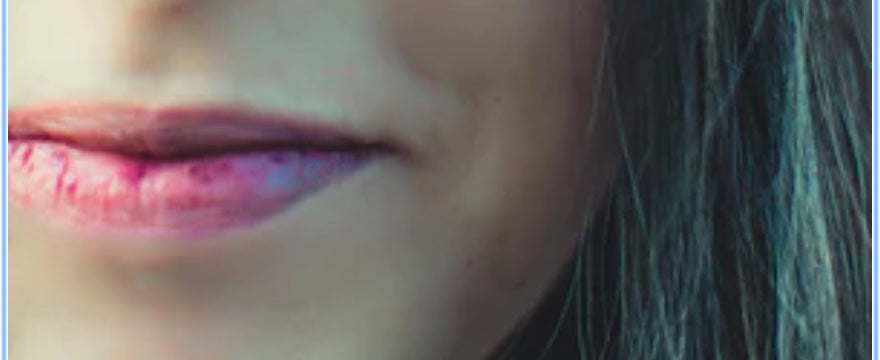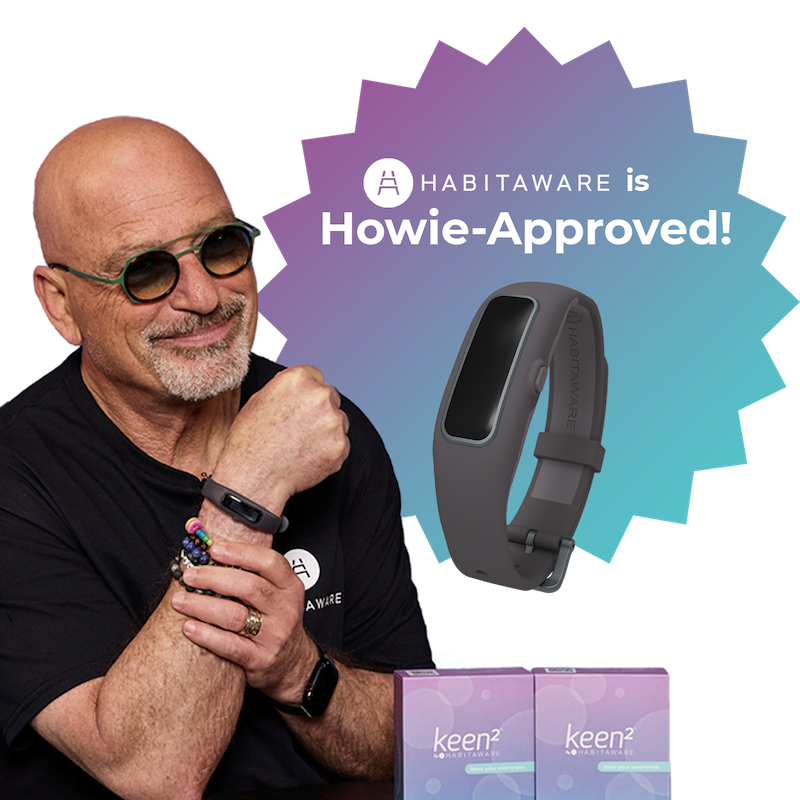~ Guest post by Kate Harveston ~
We all have our little physical quirks. My boyfriend, for example, cannot stop air drumming — a habit that bothers him not in the least (even though it's distracting as all heck when I'm trying to watch TV). One of my quirks is compulsively chewing on my lips.
My skin naturally tends toward the "desert" side of the moisture continuum. And while this means I don't get acne often, it also means my lips get wicked dry. And then the temptation to remedy the peeling with my teeth proves difficult to overcome. While biting your lips is relatively harmless, it's certainly not a good thing.
Lip biting, also called Lip Bite Keratosis, is classified as a Body-Focused Repetitive Behavior (BFRB) like Trichotillomania (hair pulling), Dermatillomania (skin picking) and Onychophagia (nail biting). This is how I was able to overcome my own compulsive lip biting (somewhat).
1. Figure Out What Triggers You
The first step in changing any bad habit is identifying the triggers driving you to the compulsion in the first place. Many people become triggered when under stress. This doesn't necessarily mean you're going through a time of crisis, however. The everyday stress of trying to perform at your best in the workplace can be a sufficient trigger.
This is the case with me. I adore my career — but I'm also very goal-oriented. I push myself to expand my boundaries daily. And I've noticed that when I get assigned a big project on a topic I know little about, the urge to bite my lips returns.
Once you identify what triggers you, pay attention to what's happening around you. Plan a way to distract yourself with replacement strategies, such as taking a short, brisk walk around the office or squeeze a stress ball when the urge to bite emerges.
2. Exfoliate Your Lips
For me, the temptation to bite gets worse when I can actually feel the peeling bits of skin on my lips. Therefore, in order to remove the temptation to bite, I had to eliminate the dead, dry skin.
I adore this homemade lemon sugar lip scrub for exfoliating. It tastes heavenly and it's completely natural and nontoxic, so no worries if you accidentally ingest some. And it leaves lips feeling soft and kissable.
Of course, if you prefer not to whip up your own brew when it comes to exfoliating your lips, commercial lip scrubs are available in a wide range of flavors. But try to avoid those with plastic microbeads to cut down on environmental waste.
3. Use a High-Quality Lip Balm
Once your lips are soft and smooth from exfoliating, you want to keep them feeling that way. Most of us reach for a petroleum-based lip balm when our lips feel dry, but I'll tell you a secret: once I stopped using such formulations in favor of better alternatives, my lips stayed silkier far longer.
Why is white petroleum so bad? After all, hospitals use it, right? While it's true that medical uses exist, when it comes to moisturizing skin, petroleum works by creating a barrier between the surface and the outside air. This means your skin cannot breathe, which damages the microbiome: the collection of bacteria and other microscopic critters sharing the human body. While you might think that suffocating a few bacteria is a good thing, when it comes to your skin, scientists are still learning that our microbiome can actually protect our body.
I'm a huge fan of the Burt's Bees line of products. They use beeswax instead of petroleum to moisturize, allowing your lips to breathe. There are a ton of other lip balms on the market with natural ingredients as well.
4. Consider Therapy If the Habit Becomes Destructive
If you're biting your lips to the point where they bleed, you may wish to seek help from a qualified cognitive or dialectical behavioral therapist. Two types of good therapy for this exist: cognitive-behavioral therapy (CBT) and dialectical behavioral therapy (DBT). CBT focuses on helping you identify and change the emotions impacting your behavior, while DBT focuses more on helping you change the resulting behavior (like lip biting).
I adore my therapist. She helped me learn alternative coping behaviors that actually help to relieve my stress instead of simply using the crutch of repetitive behaviors. As an added bonus, DBT helped me break other bad habits too.
5. Build a Support Network
Finally, rely on your squad. Let them know you are struggling to overcome a compulsive behavior and let them know how they can assist. You might ask them, for example, to keep you on track by pointing out when you start to bite if you do so unconsciously. You might also ask them to be understanding and kind, as there is definitely a stigma that habits like this are “gross.”
I work with such an amazing team of people, and I've asked many of those people to point out when I begin biting my lips. They're happy to let me know, either verbally or by getting my attention some other way when I start to backslide.
Moving on and Biting Less
I can't say that I've stopped biting my lips completely. However, by taking the steps above, I've significantly reduced the number of times I bite my lips. And I know that if I can overcome my lip biting compulsion, you can too! You may also want to look into products that will help you overcome BFRBs. If your BFRB involves hand gestures, the awareness bracelet Keen by HabitAware can help by sensing your unwanted hand gesture and sending a vibration to let you know where your hands are. Good luck, fellow biters!
About The Author

Kate Harveston is a health writer hailing from Pennsylvania. She specifically enjoys writing about mental health or women's reproductive health, and working to shatter the heavy stigmas attached to each. If you enjoy her work, you can visit her women's health blog, So Well, So Woman.


